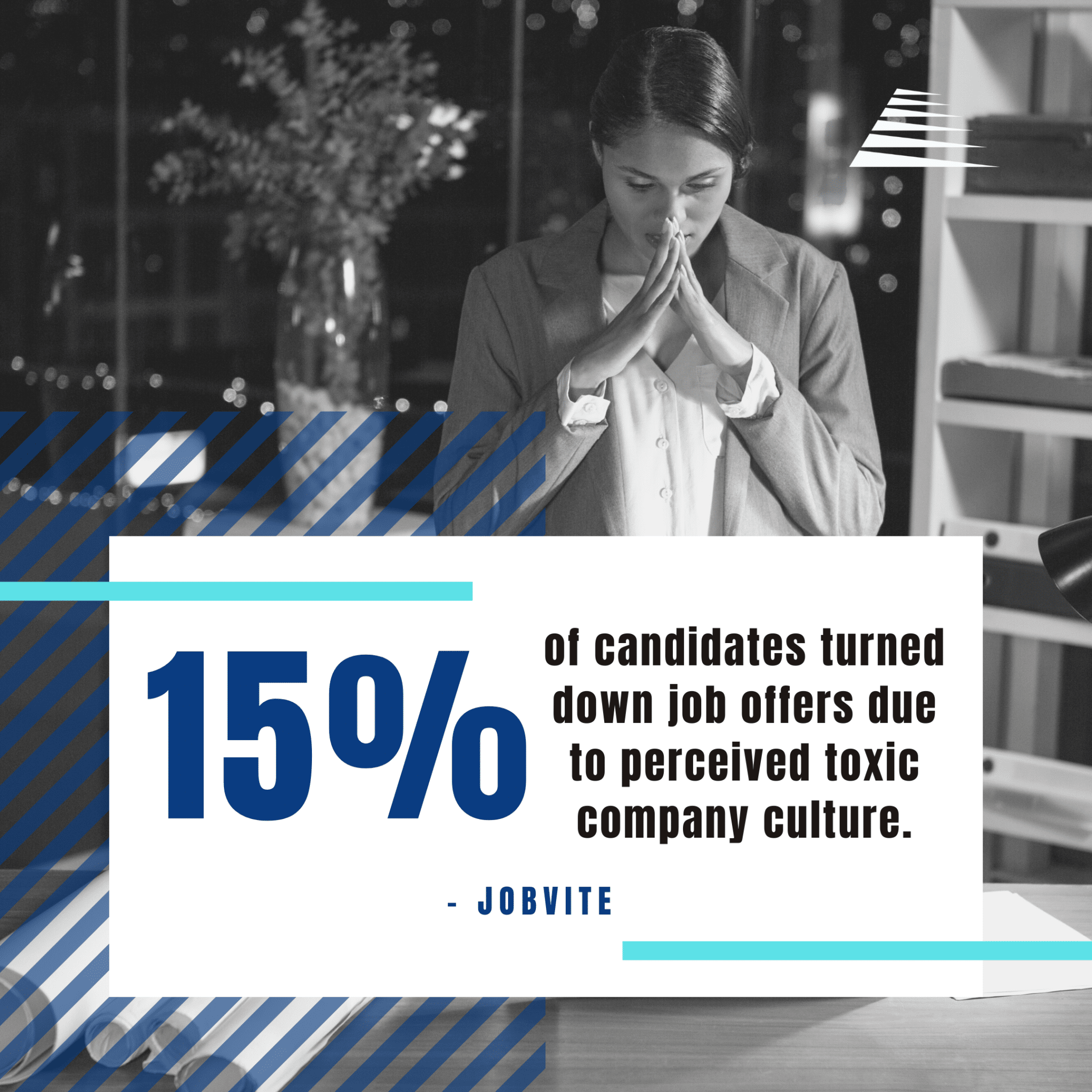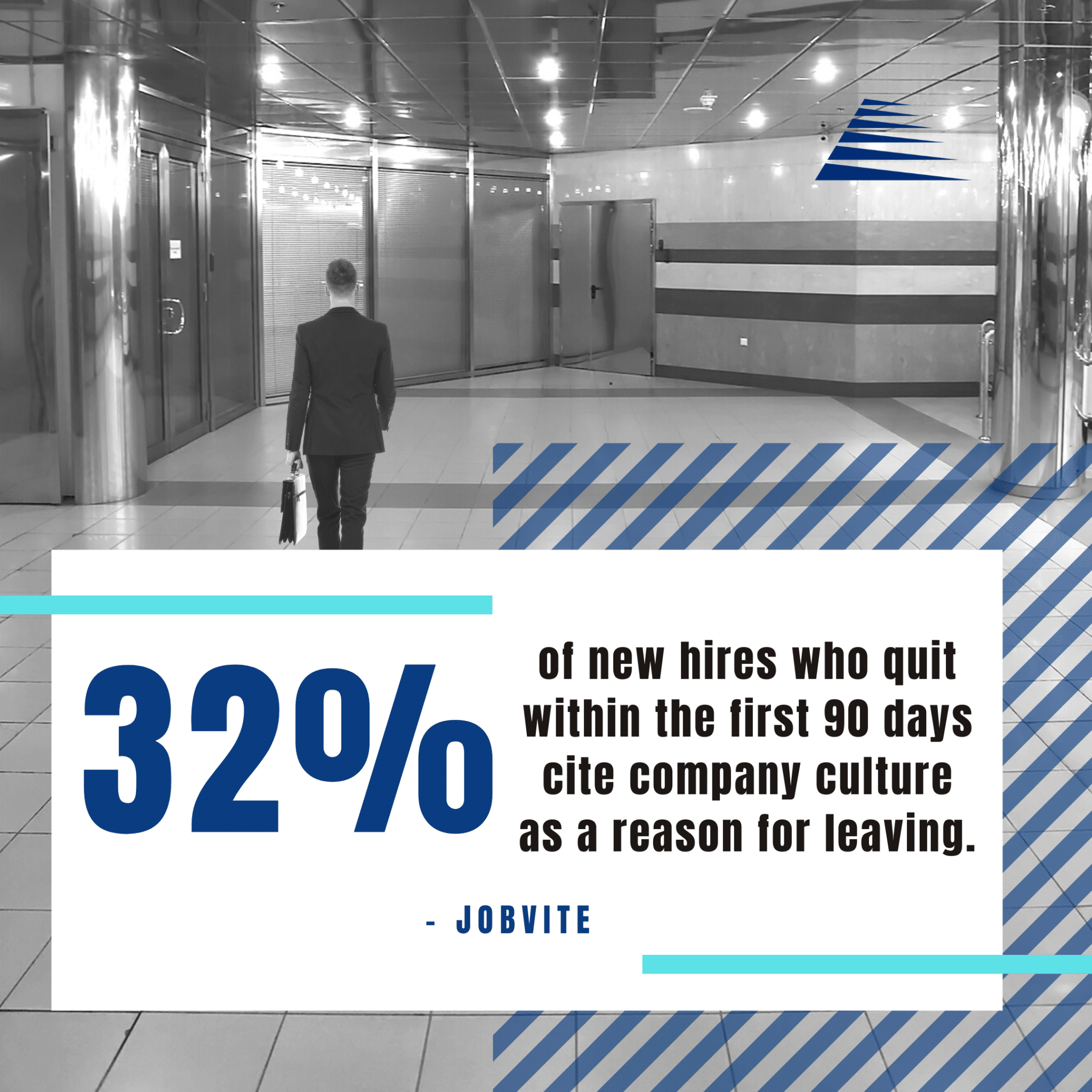Today’s job market has pulled a complete 180 on how we envision the hiring process. Candidates, especially in more specialized fields, have their pick of opportunities - with the focus shifting on applicants and cultural fit, rather than just job openings and necessity. The silver lining to this shrinking talent pool is the sense of accountability for companies to create better work environments for employees, including better benefits and fun perks. However, in-office perks like table tennis and early-out Fridays don’t always make up for bad work environments. In fact, a study by Jobvite found that over 15% of candidates turned down job offers due to perceived toxic company culture. When interviewing, it’s important to consider if a company is the right fit for you by learning about the culture, not just the benefits. During this process, here are 5 ways you can recognize a toxic work culture - and avoid it - before accepting an offer.

1. Ask About Feedback
If you want to give a good interview it’s recommended that you are prepared to ask questions, not just answer them. To get better insight into the company’s leadership, you should ask about how feedback is given within the team. If you are interviewing with management, ask for an example of a time when they approached an employee with feedback and how that feedback was received. Then, critically listen to their response. When joining a new business, no matter your prior experience, there will always be hurdles in learning their preferred processes. You’ll want to make sure that the learning curve isn’t stacked against you, and that the leadership within the company is prepared to help you along the way. Asking this question can help give you an idea of how your potential new employer will either set you up for success, or otherwise.
2. Examine their Core Values
Every company will have their own set of established core values. The trick here is to look past the catchy taglines and make sure that they are embracing their code. Before your interview, try to look for the company mission statement on their website. Assess it, then bring it up in the interview. They will be impressed by your initiative and, more importantly, you will be setting yourself up for an authentic response. Some interviewers might have their own tactics for selling their company’s culture down to a script. To cut around the sales pitch, ask for more examples. “I read that a core value of your company is perseverance - can you give me an example of how you have displayed that in your own role?” You want to work for a company that is true to their word, and one that supports values that truly align with your own.
And do your research! If there is bad press about the company that you think misaligns with their core values, ask about it. Don’t come across as attacking, just say, “I read something concerning about your brand online, and rather than believe everything I read on the internet, I decided it’d be better to get the answers from the source. Can we talk about it?” Conversations like those that happen in interviews are the perfect place to voice your concerns, and can help clear the air in a constructive way.
3. Get a Lay of the Land - or the Office
A person’s definition of toxic can differ depending on their preferred job structure, so it’s important to know your preference before starting the process. If you’re doing an in-person interview, ask to see the work space. Pay attention to how employees are interacting on the floor - are they engaged in their work? Are they collaborating? Are they distracted? Are they tense? Think about the kind of work environment you thrive in - everyone works differently! If you find side conversations with coworkers too distracting, and you see that behavior happening in abundance, maybe consider if this work environment would set you up for success. Or, on the other hand, you could thrive better in a workplace that encourages socialization and teamwork. It’s up to your preference! One person's hindrance could be another’s motivation.
4. Ask an Employee Their Opinion
Try to take advantage of all opportunities. If you have the chance to speak to someone within the department you are looking to join - better yet, someone in the same role - ask them about their experiences. Discuss what they like about working there, and ask about the team dynamic. With some larger companies, the issues on the ground floor aren’t always known by higher ups, and can cause misalignment in the understanding of the team’s collaboration. As always, if you have a question you should try to get the answers from those closest to the issue. You never know, they might tell you new, exciting information too!
5. Gauge the Pace of the Process
One of the biggest red flags in the interview process is speed. If you are rushed through from interview to offer, odds are the company could just be looking for a warm body to fill the role. While flattering, speed can signify high turnover and deeper issues within the position. Be wary of processes that feel forced.
On the flip side, interview processes that drag on for weeks could signify complications in corporate structure. This usually means that there is quite a bit of red tape within the company, and that there may be too many voices at the table concerning things like hiring. Of course, different types of roles can have different types of interview processes. If the role is especially technical, for instance, there might be more rounds to cover knowledge and testing. It’s one thing to be thorough, but know the difference.

Toxic work environments aren’t a hiring manager’s favorite topic to cover during an interview - but are quickly discovered by those who accept the position without doing their due diligence. Jobvite found that over 32% of new hires who quit within the first 90 days cite a toxic company culture as a reason for leaving. Don’t make the mistake of accepting a job offer without diving into company culture first. Listen to your gut, and pay attention to what’s not being said through these preliminary stages to avoid landing yourself in a less than ideal work culture.
